God, Probability, and Life after Death
God, Probability, and Life after Death
An Argument for Human Resurrection
William Hunt
LEXINGTON BOOKS
Lanham Boulder New York London
Published by Lexington Books
An imprint of The Rowman & Littlefield Publishing Group, Inc.
4501 Forbes Boulevard, Suite 200, Lanham, Maryland 20706
www.rowman.com
Unit A, Whitacre Mews, 26-34 Stannary Street, London SE11 4AB
Copyright 2017 by Lexington Books
All rights reserved . No part of this book may be reproduced in any form or by any electronic or mechanical means, including information storage and retrieval systems, without written permission from the publisher, except by a reviewer who may quote passages in a review.
British Library Cataloguing in Publication Information Available
Library of Congress Cataloging-in-Publication Data Available
ISBN 978-1-4985-2606-7 (cloth : alk. paper)
ISBN 978-1-4985-2607-4 (electronic)
 The paper used in this publication meets the minimum requirements of American National Standard for Information SciencesPermanence of Paper for Printed Library Materials, ANSI/NISO Z39.48-1992.
The paper used in this publication meets the minimum requirements of American National Standard for Information SciencesPermanence of Paper for Printed Library Materials, ANSI/NISO Z39.48-1992.
Printed in the United States of America
To Helen, Nicola, Robert, Peter, Amber, and Liberty
Preface
One Sunday a year or so ago, after some stirring hymns, I sat down in my usual pew in St Johns the Evangelist Church in Blackheath, London, and the Reverend Anne Williamson stepped up to the lectern to address the congregation. Her subject was human resurrection and the promise made to mankind by Jesus. She emphasised the essential materialist view of the Christian faith on this matter; that is, bodily resurrection rather than the oft thought spiritual resurrection, with the soul fluttering off to Heaven. I was both captivated by her presentation and perplexed by the thought of a dead person, whose body had putrefied and returned to dust, rising up to live once again. Such thoughts haunted me in the following days and weeks and I became determined to explore my thoughts on this issue and try to find an explanation for human resurrection other than God moves in mysterious ways . The following chapters represent my journey of exploration in this fascinating domain, where I engaged with that question that nearly everyone asks at some point in their life: Is there life after death?
Acknowledgments
Heythrop College, University of London, United Kingdom
I should also like to express my thanks to the following who have given me advice and support in the writing of this book: Michael Donovan, Professor Michael Barnes, Professor Donald Gillies, Professor Colin Howson, Professor Gwen Griffith-Dickson, Dr. Andris Abakuks, Dr Jenifer Bailey, Ronald Barkham and Chris Romer.
I should particularly like to thank John Cartlidge for acting as an evaluator in helping to determine the vicarious probability values in four of the chapters.
Introduction
The human resurrection hypothesis is not confined to the Christian religion; most religions engage with the question in some way and typically they have a general eschatology and sometimes a personal one in their doctrines. My approach herein has been to present a personal resurrection hypothesis; that is, individual resurrection upon death, although the arguments presented do have application to the resurrection of the whole of mankind in a general eschatological hypothesis.
There are a very large number of different religions, past and present, with differing eschatological doctrines within them, but I limit myself to a brief comment on five world-religions and their resurrection principles.
Hinduism, is probably the oldest and most complex religion in the world with both atheistic and theistic notions within its differing systems. Hinduism has a personal rather than general resurrection hypothesis based upon the notions of karma and samsara . Karma is a cause and effect concept whereby the quality of the afterlife reflects the deeds done in Earthly life; and samsara is the repetition of birth, life, and death. Re-births can be in differing planes; Heavens, Hells, and on Earth, with life forms on Earth being varied according to the individuals karma. Generally, Hinduism embraces the concept of a soul that can either exist as is, or acquire another material existence; the former being the ideal post-mortem existence.
Buddhism sprang from Hinduism and is as diverse in its beliefs and practices. Though not theistic, some Buddhist traditions hold to the view of endless life, either by reincarnation or nirvana, a perfected state of mind free from repeating reincarnations. However, not all Buddhist tradition holds to the idea of rebirth.
Like Hinduism, Buddhism has a personal eschatology rather than a general one, but unlike Hinduism it rejects the notion of a human soul in favor of a conjunction of physicality and mental-states; mental-states seemingly being able to survive without physicality.
Zoroastrianism is an ancient religion of the Persian empire with a resurrection philosophy that had a strong influence on the later Abrahamic religions of Judaism, Christianity, and Islam. It has both a personal and general eschatology and is a dualistic (body and soul) religion. The notions of Heaven, Hell, and bodily resurrection, common to Christianity, originate in Zoroastrianism. Like the Judaic, Christian, and Islamic religions, the general eschatology of Zoroastrianism involves a final confrontation between God and evil resulting in a general resurrection and judgement of mankind.
There is no systematic personal eschatology in Judaism despite references to Heaven and Hell in the literature. There is, however, Sheol or pit for the dead, a later interpretation in Judaism, where the dead await judgement and general bodily resurrection with the reestablishment of Jerusalem.
Christianitys eschatology is like Judaism with more emphasis on a general rather than personal resurrection, although a personal resurrection scenario can be inferred from the New Testament. Indeed, Hades, like Sheol, is an intermediary holding-world pending the general resurrection. This two-phase event involves the return of Christ in the new Jerusalem, the destruction of evil, and the resurrection of all mankind prior to judgement. Phase one of the general resurrection is for the very righteous; phase two is for everyone else who are then judged: the righteous survive and the wicked are destroyed. Both Judaism and Christianity echo the eschatology of Zoroastrianism.
Islam has a clear personal eschatology based upon dualism, where the righteous soul survives death to live comfortably in their supernaturally converted graves pending the general physical resurrection; note the similarity to Sheol. The same state of affairs occurs for the unrighteous, but their graves are a place of suffering. The general resurrection again reflects the eschatology of Zoroastrianism; a bodily resurrection in paradise.
The writing of this book was a personal journey of discovery, as before commencing writing I was not certain what result my analysis would yield. This is because it was a cumulative probabilistic analysis; that is, consideration of the probable truth of a set of propositions relative to relevant evidence resulting in the formation of a degree of belief in their truth. Cumulative, because the degree of truth of each proposition considered impinges on the degree of belief in the truth of the next proposition, and so on until the set of propositions is exhausted and a result emerges. The central proposition under consideration is that of human resurrection; namely, dead person will be resurrected . My approach was primarily from the proposition God exists through the proposition Jesus died and was Resurrected followed by the proposition there are perceived conscious visitations to Heaven or other supernatural realms by persons whilst in a near-death state finalizing with the proposition living persons experience apparitions of dead persons . The result that emerged surprised me; that is, the probability of the proposition dead person will be resurrected , in terms of a degree of belief in that proposition was high, enabling me to claim that human resurrection is a distinct possibility.
Next page
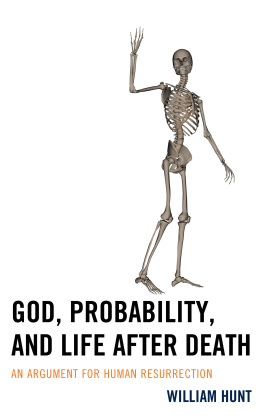




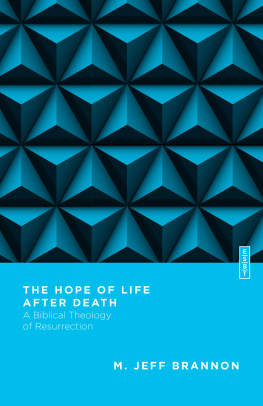
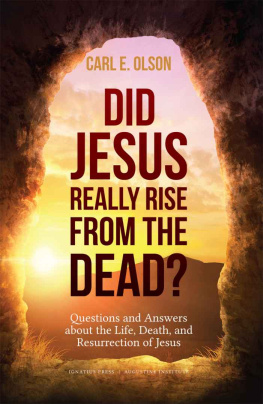
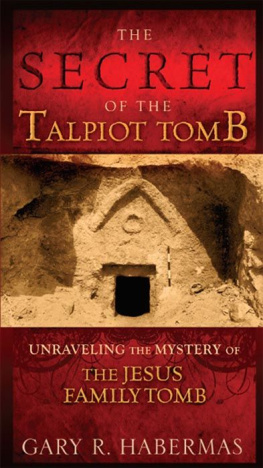
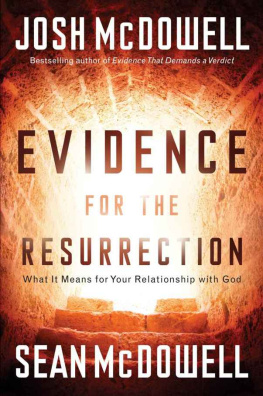
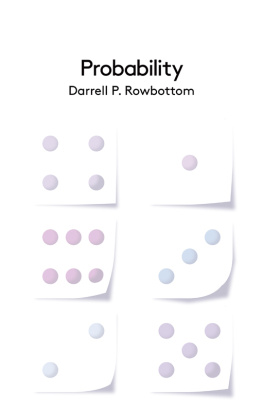
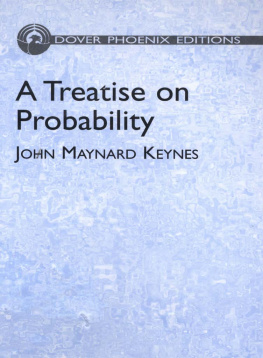
 The paper used in this publication meets the minimum requirements of American National Standard for Information SciencesPermanence of Paper for Printed Library Materials, ANSI/NISO Z39.48-1992.
The paper used in this publication meets the minimum requirements of American National Standard for Information SciencesPermanence of Paper for Printed Library Materials, ANSI/NISO Z39.48-1992.